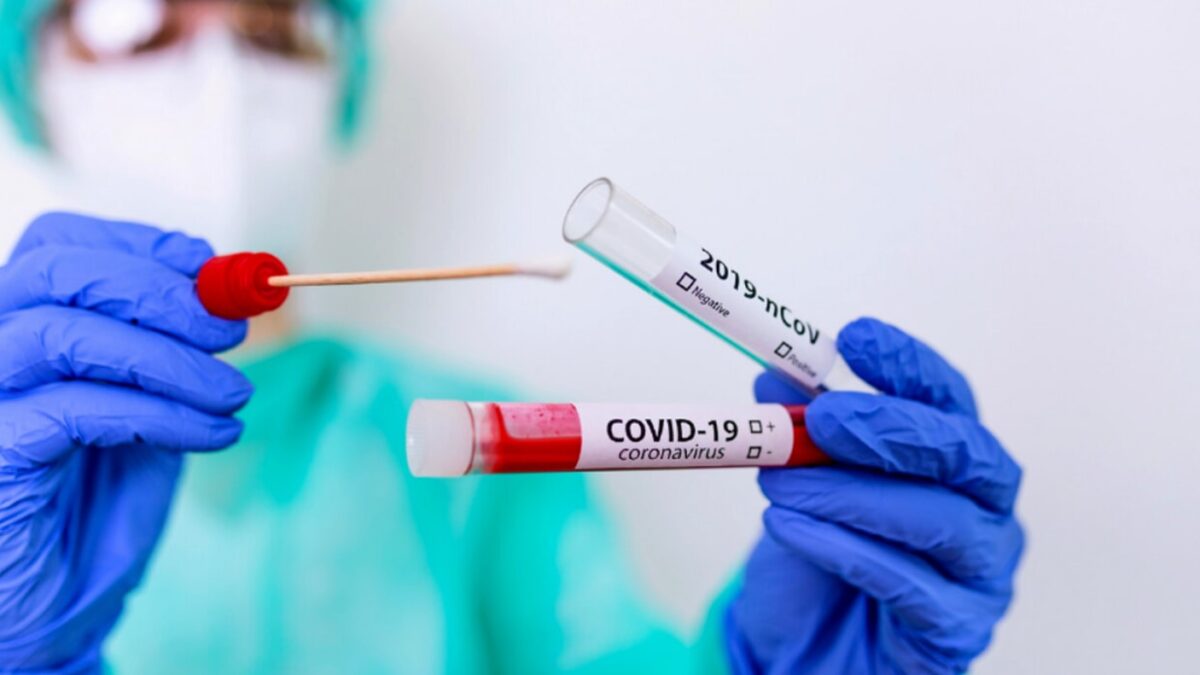Three instances were recorded in Kaduna State, one in Bauchi, and one each in Ekiti and Plateau states.
By Omotayo Olutekunbi
Between August 14 and August 15, there were 144 new cases each day, according to the Nigeria Centre for Disease Control (NCDC).
On Tuesday, August 16, 2022, the NCDC said on its official website that Lagos state reported 101 instances of the 144 new illnesses, while Abia verified 13 further cases.
The organization further stated that there were 10 new instances in Akwa-Ibom, while there were 9 in the Federal Capital Territory (FCT), 3 in Kano State, and the other cases came from other states.
Three instances were recorded in Kaduna State, one in Bauchi, and one each in Ekiti and Plateau states.
The NCDC also stated that there were no instances in Ogun, Ondo, Osun, Oyo, Rivers, or Sokoto.
According to the organization, the number of infections in the nation grew to 262,664 as a result of the most recent instances, while 3,147 people died as a result.
The NCDC website noticed the rise in Lagos with a wide disparity between it and other states in its breakdown of the most recent illnesses.
Lagos state confirmed 102,849 infections of the 262,664 total cases since the pandemic’s onset in February 2020, followed by the FCT and Rivers with 29,070 and 17,656, respectively.
In contrast to the 256,334 patients who have been treated and released around the country since the virus’s emergence more than two years ago, 3,917 people are now sick with it.
According to the News Agency of Nigeria (NAN), COVID-19 is now spreading rapidly over the world. Fortunately, the majority of them are only showing minor symptoms, in great part because of the high immunization rate.
The fundamental causes of certain people’s considerably more severe disease trajectories, however, are still not well understood.
The human DNA may contain the answer to why some people are more severely affected by COVID-19 than others. Researchers from the Berlin Institute of Health at Charité (BIH), in collaboration with peers from the UK and Canada, have identified genes and proteins that raise the chance of developing severe COVID-19.
Related posts
Controversial Golden Globes Was Still Held
Reviews
Follow Our Activities On Facebook
7 hours ago
13 hours ago
‘Nigeria Will Become Major Global Economy Under Tinubu’ – Shettima
blueprintafric.com
Vice President Kashim Shettima is confident that President Bola Tinubu will make Nigeria a significant economic force in the world. At the Commonwealth Enterprise Investment Council (CWEIC) delegation...14 hours ago
17 hours ago
17 hours ago
SUBSCRIBE
[mc4wp_form id=”2012″]
Top Reads!
#BigBrotherNaija “Level Up” Week 6
Though last Sunday Sunday was meant to be a “no-eviction” day, it came as a shocker when fake housemate, Modella…
Dating in 2022; Situationships Are Not For The Fainthearted
Situationships are defined as that space between a defined relationship and something other than a friendship. It is a romantic…
20 Questions With Dinta Media’s Visual Storyteller, Chimeremogo Nwoke
Dinta Media is not really just a media production brand but we like to see ourselves as a hub for…
How Are Nigeria’s Small Businesses Coping?
The current rising rate of inflation and other burdens against the Nigerian economy speaks to the realities of the times.
Thrifting Is All The Rave Now, Here’s Why
By Amy Adindu The affordable clothing movement has gained global attention and acceptance as we’re all trying to look like…
#BigBrotherNaija “Level Up” Week 2
Week 2 of the highly watched Nigerian TV show kicked off with an early plot twist. On Sunday, Big Brother…
#BlueTunes: Burna Boy, Omah Lay Top Album Picks For July
July was a promising month for music lovers; from Lizzo’s album titled Special and Imagine Dragons’ Mercury, (Acts 1 &…
#BlueTunes Album Picks For June
Gbagada Express – Boj Bolaji Odojukan, popularly known as BOJ, was raised both in England and Nigeria. He shot to…
“A Creative’s Dream” with Jeff Chinonso
On the 26th of June 2022, Jeff Chinonso hosted his first solo art exhibition. The Augmented Reality exhibition themed “A…
Nigerian API-based company Thepeer raises $2.1 million
Tech infrastructure startup Thepeer has raised a $2.1 million seed round according to a report from TechCabal. Thepeer, a Nigerian…
Dika Ofoma, Ugochukwu Onuoha take on grief in Debut Film “The Way Things Happen”
The twenty-minute film focuses on the loss of a loved one, and how grief changes a person.
Nigerian Startups might just be Crippled by a Recently Leaked bill
Over the years there has been talks of amendment on the 2007 Act of the National Information & Technology Agency (NITDA).
Why We Love Kelechi Amadi Obi
The definition of talent is Kelechi Amadi’s iconic story. Imagine a person who studies law in school, gets called to Bar, and leaves it all for something different and unrelated…Painting!

















